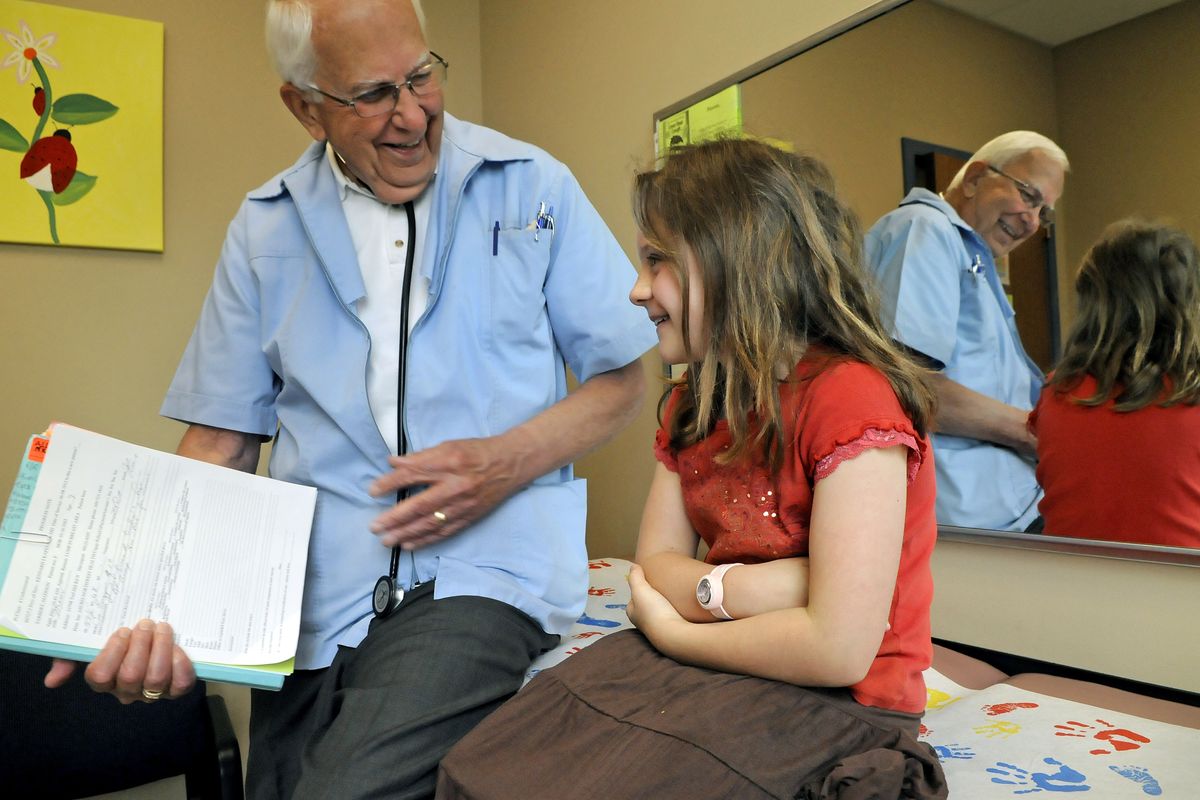Older workers admit they can’t sit still

Kennard Kapstafer, 78
Job description: The Pediatric Associates of Spokane doctor has been a pediatrician since 1962.
“I cut my hours back to three days a week when I turned 70, and now I just work two days a week.”
Some of Kapstafer’s current patients are the children and grandchildren of the babies he saw in the 1960s.
“I had a young lady I took care of as a newborn, and now her children are 20 and 18. She came in not too long ago, crying and crying. She said, ‘Somebody told me you had died. When I found out you were still alive, I made an appointment to come in and see you.’ I said, ‘Honey, I’ll send you a notice when I pass on.’ ”
Why he still works: “I enjoy what I’m doing, and I have awesome partners. There is nothing more fascinating than to watch children grow.”
Advantages: “Physically, you’re moving all the time. Mentally, there’s no equal. You have to keep up. There’s a lot of reading and research to stay current.”
Advice to older workers: “If you’re still doing a good job and people are comfortable with you, and you are physically and mentally OK but are just getting irritated with all the (workplace) stuff, you just can’t let yourself do that.”
Last laugh: “Not too long ago, I had this little 4-year-old boy who kept watching me, and finally he spurted out, ‘Boy, doctor, you are getting old.’ Mom came unglued and said, ‘You are not supposed to talk to people about their age.’
“I looked at the little guy and said, ‘I know, honey, I’m getting old, how old do you think I am?’ He put his hands on his hips and said, ‘Boy, you got to be 28.’ ”
Virginia Danke, 87
Job description: Works the “will call” window for TicketsWest at Spokane entertainment and sports events. Puts in 15 to 18 hours a month, three to five hours a shift.
Career, the early years: Danke was a physical education teacher and coach at Lewis and Clark High School for 29 years, retiring at age 52 in 1977. After retiring, she led tours for regional travel groups.
Why she still works: “I have some physical problems and Medicare doesn’t pay for everything, you know. This helps with expenses. And it gives me pocket money. I retired so long ago, and my pension is based on my salary back then.”
She makes less than $10 an hour, but the socializing with co-workers is as important as the extra money.
“If you withdraw within yourself, you are sort of done. It’s kept me going. If you didn’t have something to look forward to, what would be the use?”
How long she’ll work: “As long as they let me. So far, so good.”
Hugh Davis, 68
Job description: Works for Kelly Services, a Spokane temp agency, overseeing career development seminars for adults. At about 40 seminars a year, he hands out packets, registers people, makes announcements and acts as a timekeeper. He earns $11 an hour.
Career, the early years: The University of Oregon journalism graduate worked 19 years in newspaper and broadcast journalism and then worked as a communications professional for Spokane Public Schools, retiring in 2002.
Why he still works: “After four months of retirement, and 11 pounds heavier, I needed to get away from the refrigerator. You get up in the morning, do whatever it is, your spouse goes off to work and then there’s a silence. I needed to do something.
“We have some extra money to do things – my wife calls it Hugh’s mad money – but the money is incidental. I worked doing something from about age 12. I was a paperboy, and I set pins in a bowling alley.”
Advice for the newly retiring: “You should be doing something, whether it’s volunteering or working. Don’t just sit around. You get dull, and you don’t feel good.”